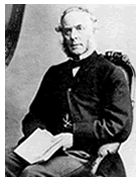A Quote by Lysander Spooner
Children learn many principles of natural law at a very early age. For example: they learn that when one child has picked up an apple or a flower, it is his, and that his associates must not take it from him against his will.
Related Quotes
To follow Christ is to become more like Him. It is to learn from His character. As spirit children of our Heavenly Father, we do have the potential to incorporate Christlike attributes into our life and character. The Savior invites us to learn His gospel by living His teachings. To follow Him is to apply correct principles and then witness for ourselves the blessings that follow.
I have no religion, and at times I wish all religions at the bottom of the sea. He is a weak ruler who needs religion to uphold his government; it is as if he would catch his people in a trap. My people are going to learn the principles of democracy, the dictates of truth and the teachings of science. Superstition must go. Let them worship as they will; every man can follow his own conscience, provided it does not interfere with sane reason or bid him against the liberty of his fellow-men.
He who, in an enlightened and literary society, aspires to be a great poet, must first become a little child. He must take to pieces the whole web of his mind. He must unlearn much of that knowledge which has perhaps constituted hitherto his chief title to superiority. His very talents will be a hindrance to him.
To be right, a person must do one of two things: either he must learn to have God in his work and hold fast to him there, or he must give up his work altogether. Since, however, we cannot live without activities that are both human and various, we must learn to keep God I everything we do, and whatever the job or place, keep on with him, letting nothing stand in our way.
If the youth is content to abandon his previous associates and to throw in his lot whole-heartedly with the rulers, he may, after suitable tests, be promoted, but if he shows any regrettable solidarity with his previous associates, the rulers will reluctantly conclude that there is nothing to be done with him except to send him to the lethal chamber before his ill-disciplined intelligence has had time to spread revolt. This will be a painful duty to the rulers, but I think they will not shrink from performing it.
It requires twenty years for a man to rise from the vegetable state in which he is within his mother's womb, and from the pure animal state which is the lot of his early childhood, to the state when the maturity of reason begins to appear. It has required thirty centuries to learn a little about his structure. It would need eternity to learn something about his soul. It takes an instant to kill him.
A child who passes through many hands in turn, can never be well brought up. At every change he makes a secret comparison, which continually tends to lessen his respect for those who control him, and with it their authority over him. If once he thinks there are grown-up people with no more sense than children the authority of age is destroyed and his education is ruined.
Only to two or three persons in all the world are the reminiscences of a man's early youth interesting: to the parent who nursed him; to the fond wife or child mayhap afterwards who loves him; to himself always and supremely--whatever may be his actual prosperity or ill fortune, his present age, illness, difficulties, renown, or disappointments--the dawn of his life still shines brightly for him, the early griefs and delights and attachments remain with him ever faithful and dear.
Pressed up against him, I can feel the thud of his heart against mine, his ribcase expanding and contracting rapidly against my chest, the warm whisper of his breath tickling the side of my neck, the brush of his leg against my thigh. Resting my arms on his shoulders, I pull back a little to get a look at his face. But he isn't smiling any more.









































